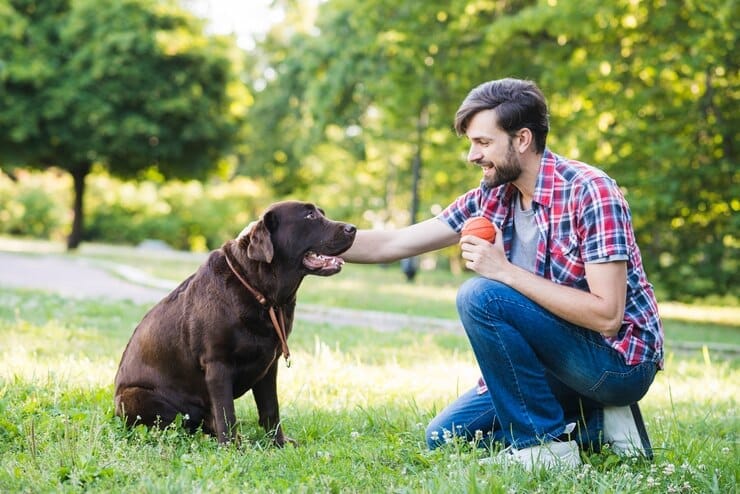Dogs are known for their love of sleep, often spending hours curled up in a ball or sprawled out on the floor. But have you ever wondered why dogs sleep so much? While it may seem excessive to us humans, sleeping is a crucial part of a dog's daily routine and serves many important functions. So, "Why Do Dogs Sleep So Much?" Understanding the reasons behind their sleep habits can provide insights into their overall health and behavior.
Canine sleep patterns differ from those of humans, with dogs experiencing shorter sleep cycles and spending more time in the REM (rapid eye movement) stage of sleep. Factors such as age, breed, and activity level can also influence a dog's sleep duration and quality. Understanding these patterns and factors can help pet owners ensure their furry friends are getting the rest they need to stay healthy and happy.
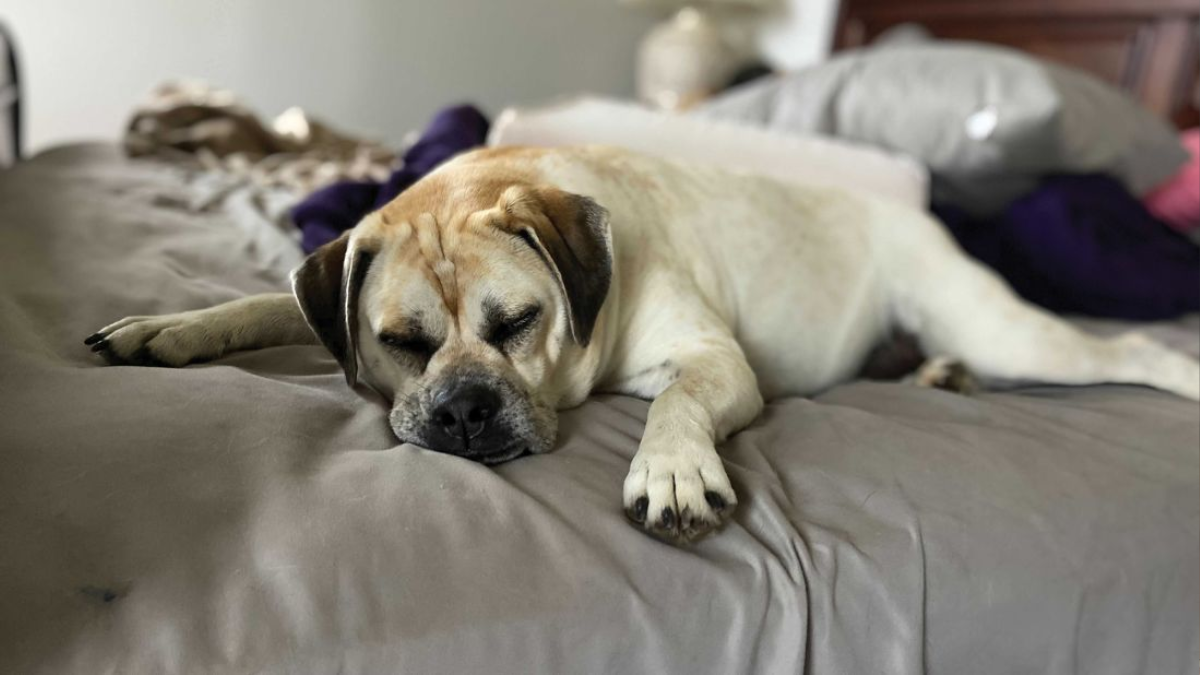
In this article, we will explore the reasons behind dogs' sleeping habits and how to improve their sleep quality. We will also discuss common sleep disturbances in dogs and answer some frequently asked questions about canine sleep. By the end of this article, you will have a better understanding of why dogs sleep so much and how to help them get the rest they need.
Key Takeaways
- Dogs have different sleep patterns than humans, with shorter sleep cycles and more time spent in REM sleep.
- Factors such as age, breed, and activity level can influence a dog's sleep duration and quality.
- Improving your dog's sleep can lead to better health and behavior.
Canine Sleep Patterns
Dogs are known for their love of sleep, but their sleep patterns are different from those of humans. Understanding the sleep patterns of dogs can help pet owners ensure their furry friends get the rest they need.
Sleep Cycle Comparison
Dogs have a shorter sleep cycle than humans, lasting only a few hours. While humans typically have a sleep cycle of around 90 minutes, dogs have a cycle of around 20 to 25 minutes. This means that dogs tend to wake up more frequently during the night and take more naps during the day.

During their sleep cycle, dogs go through two stages of sleep: REM (rapid eye movement) and non-REM sleep. REM sleep is when dogs dream and their eyes move rapidly. Non-REM sleep is a deeper sleep where dogs are less likely to be disturbed.
Age-Related Sleep Behavior
As dogs age, their sleep patterns may change. Puppies and younger dogs tend to sleep more than adult dogs, as their bodies are still developing. Older dogs may also sleep more, but their sleep may be more fragmented and they may have trouble falling asleep or staying asleep.
Certain breeds may also have different sleep patterns. For example, breeds that were originally bred for hunting or guarding may be more alert and have a harder time relaxing and falling asleep.
Overall, understanding a dog's sleep patterns can help pet owners ensure their furry friends are getting the rest they need to stay healthy and happy.
Factors Influencing Sleep Duration
Breed-Specific Tendencies
Different dog breeds have distinct genetic makeups that affect their sleeping habits. For instance, large breeds such as Mastiffs and Great Danes tend to sleep more than small breeds like Chihuahuas and Jack Russell Terriers. This is because larger dogs generally have slower metabolic rates, which means they require more sleep to maintain their energy levels. Additionally, some breeds such as Bulldogs and Pugs have respiratory issues that may affect their sleep quality, causing them to sleep more. So, "Why Do Dogs Sleep So Much?" Understanding these breed-specific factors sheds light on the variations in dogs' sleep patterns and emphasizes the importance of considering individual breed characteristics when assessing their sleep needs.
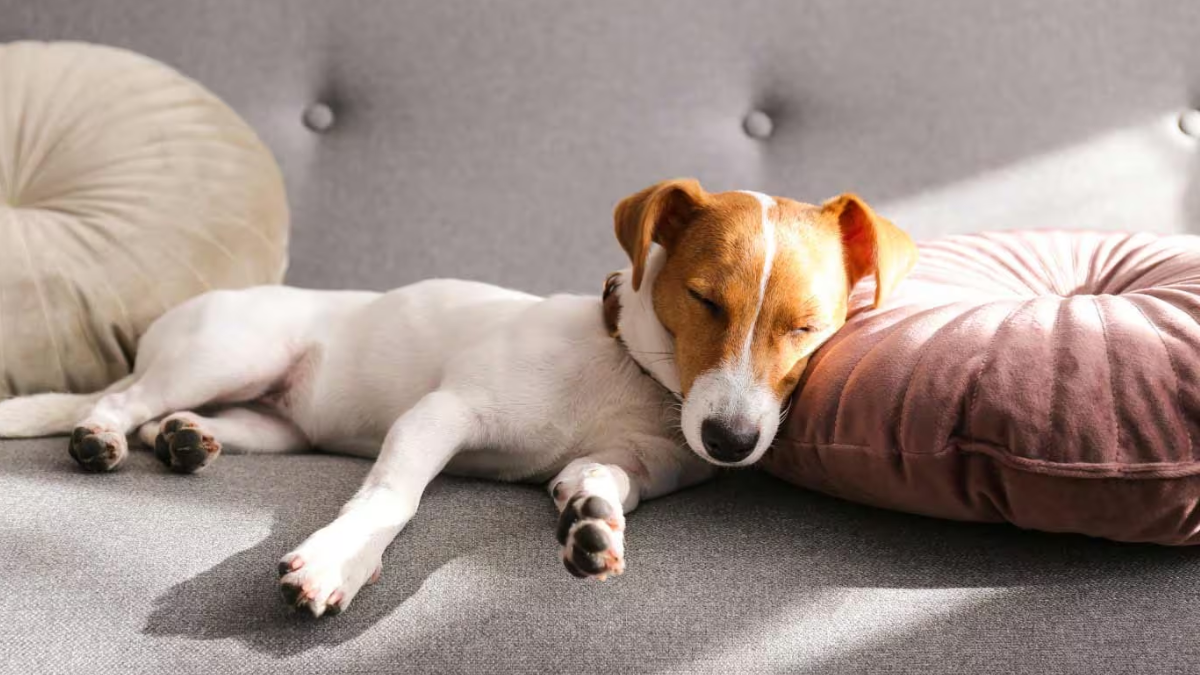
Activity Levels
A dog's activity level also plays a significant role in how much they sleep. Highly active dogs, such as working breeds or those that participate in dog sports, require more sleep to recover from their physical exertion. Conversely, dogs that are less active, such as senior dogs, may sleep more due to decreased energy levels.
Health and Nutrition
A dog's overall health and nutrition can also affect their sleep patterns. Dogs that are in good health and receive proper nutrition tend to sleep better and require less sleep overall. Conversely, dogs with underlying health issues or poor nutrition may sleep more due to fatigue or discomfort.
In conclusion, several factors can influence a dog's sleep duration, including breed-specific tendencies, activity levels, and health and nutrition. Understanding these factors can help pet owners provide their dogs with the appropriate amount of rest and care they need to maintain optimal health and wellness.
Benefits of Sleep for Dogs
Cognitive Function
Dogs need plenty of sleep to maintain their cognitive function. During sleep, their brains consolidate memories, process information, and learn new things. Lack of sleep can lead to cognitive dysfunction, which can cause confusion, disorientation, and memory loss in dogs.
Growth and Repair
Sleep is also essential for the growth and repair of a dog's body. During sleep, the body produces growth hormone, which helps to repair and regenerate tissues. This is especially important for puppies, who need plenty of sleep to support their rapid growth and development.
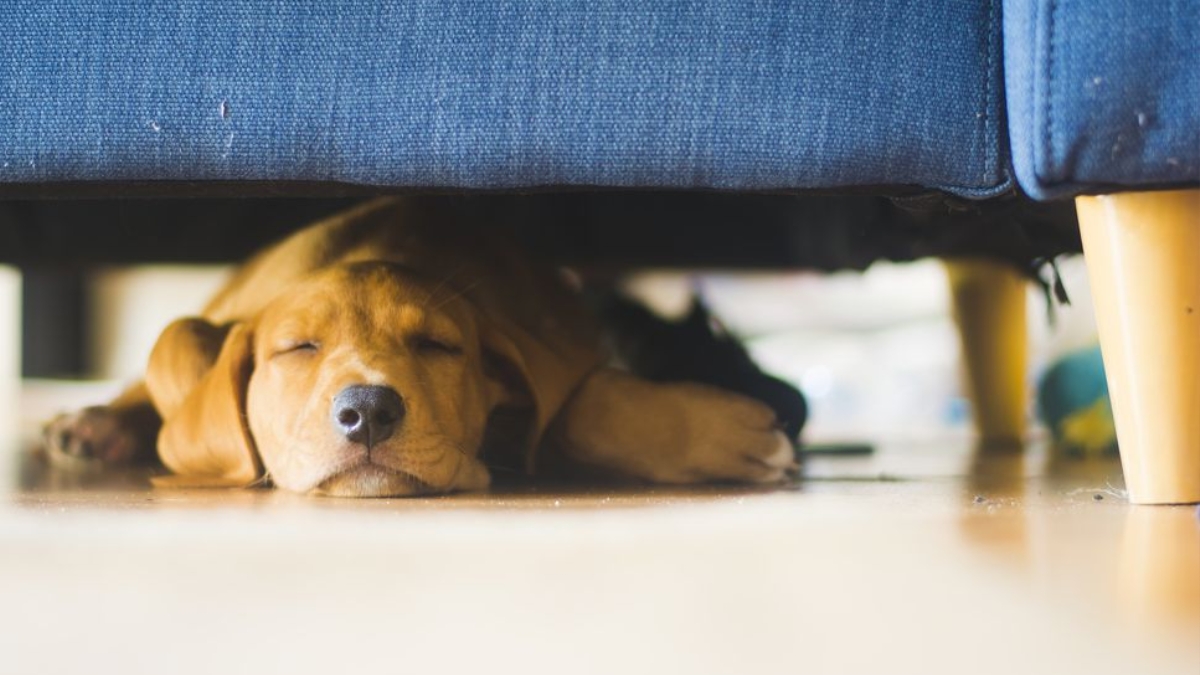
Immune System Support
Sleep plays a vital role in supporting a dog's immune system. During sleep, the body produces cytokines, which are proteins that help to fight off infection, inflammation, and stress. Lack of sleep can weaken a dog's immune system, making them more susceptible to illness and disease.
In conclusion, sleep is crucial for a dog's overall health and well-being. By providing dogs with a comfortable and safe sleeping environment, owners can ensure that their furry friends get the rest they need to thrive.
Behavioral Aspects of Dog Sleep
Sleep Position Significance
Dogs can sleep in various positions, such as curled up, stretched out, or on their backs. The position they choose to sleep in can have behavioral significance. For example, dogs that sleep curled up may feel more secure and protected, while dogs that sleep stretched out may feel more relaxed and comfortable.
Another interesting position that dogs sleep in is on their backs with their legs in the air. This position is called the "dead bug" position and is often seen in puppies. Dogs that sleep in this position may be showing that they feel completely safe and comfortable in their environment.
Dreaming in Dogs
Dogs, like humans, experience rapid eye movement (REM) sleep, which is when most dreaming occurs. During REM sleep, a dog's body is relaxed, and their eyes move rapidly under their closed eyelids. It is believed that dogs dream about things that have happened to them during the day, such as playing with their favorite toy or going for a walk.
Some experts believe that dogs may also dream about their past experiences, such as chasing a squirrel or playing with their littermates. It is important to note that dogs can also have nightmares, which can cause them to wake up suddenly and appear frightened.
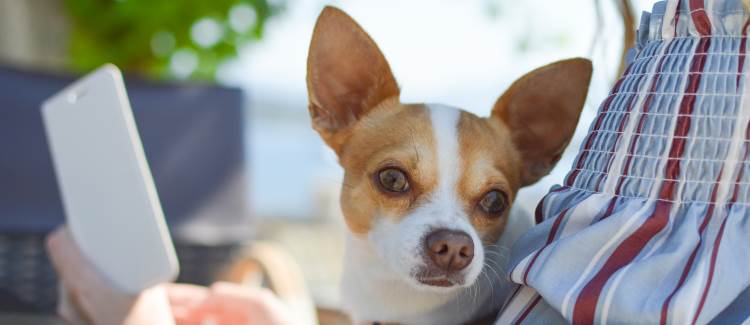
In conclusion, understanding the behavioral aspects of dog sleep can help pet owners better understand their furry companions and improve their overall well-being.
Common Sleep Disturbances
Sleep Disorders
Just like humans, dogs can suffer from sleep disorders that can affect the quality and quantity of their sleep. One of the most common disorders is sleep apnea, which causes dogs to stop breathing for short periods during sleep. This can lead to disrupted sleep, snoring, and excessive daytime sleepiness.
Another sleep disorder that affects dogs is narcolepsy, a condition that causes sudden and uncontrollable episodes of sleep. Dogs with narcolepsy may fall asleep while standing up, walking, or even eating. This disorder is caused by a dysfunction in the brain's ability to regulate sleep-wake cycles.
Environmental Factors
Environmental factors can also contribute to sleep disturbances in dogs. For example, loud noises such as thunderstorms or fireworks can cause anxiety and disrupt a dog's sleep. Similarly, changes in routine or environment, such as moving to a new home or having a new family member, can also affect a dog's sleep patterns.
Additionally, dogs that are kept in environments with poor lighting or high levels of noise can have trouble falling and staying asleep. It is important to create a comfortable and quiet sleeping area for dogs to promote healthy sleep habits.

Overall, identifying and addressing sleep disturbances in dogs is important for their overall health and well-being. By creating a comfortable sleeping environment and addressing any underlying sleep disorders, owners can help ensure their furry friends get the restful sleep they need.
Improving Your Dog's Sleep
Creating a Sleep-Friendly Environment
Dogs can be sensitive to their surroundings, so creating a comfortable and peaceful environment can help improve their sleep. Here are some tips to create a sleep-friendly environment for your furry friend:
- Choose a comfortable bed: Invest in a comfortable bed that is the right size for your dog. Make sure it is made of materials that are easy to clean and don't cause any allergies.
- Keep the room quiet: Loud noises can be disruptive to your dog's sleep. Try to keep the room quiet and peaceful. If there are outside noises that cannot be avoided, consider using earplugs or white noise machines to block out the sound.
- Maintain a comfortable temperature: Dogs are sensitive to temperature changes, so make sure the room is not too hot or too cold. Keep the temperature between 60 and 70 degrees Fahrenheit.
Establishing a Routine
Establishing a routine can help your dog get into a sleep pattern and improve the quality of their sleep. Here are some tips to establish a routine:
- Set a bedtime: Dogs thrive on routine, so try to set a consistent bedtime for your furry friend. This will help them get into a sleep pattern and improve the quality of their sleep.
- Create a pre-sleep routine: Just like humans, dogs can benefit from a pre-sleep routine. This can include activities such as a walk, playtime, or a relaxing massage.
- Avoid late-night meals: Feeding your dog late at night can disrupt their sleep. Try to feed them at least 2-3 hours before bedtime to allow their food to digest properly.
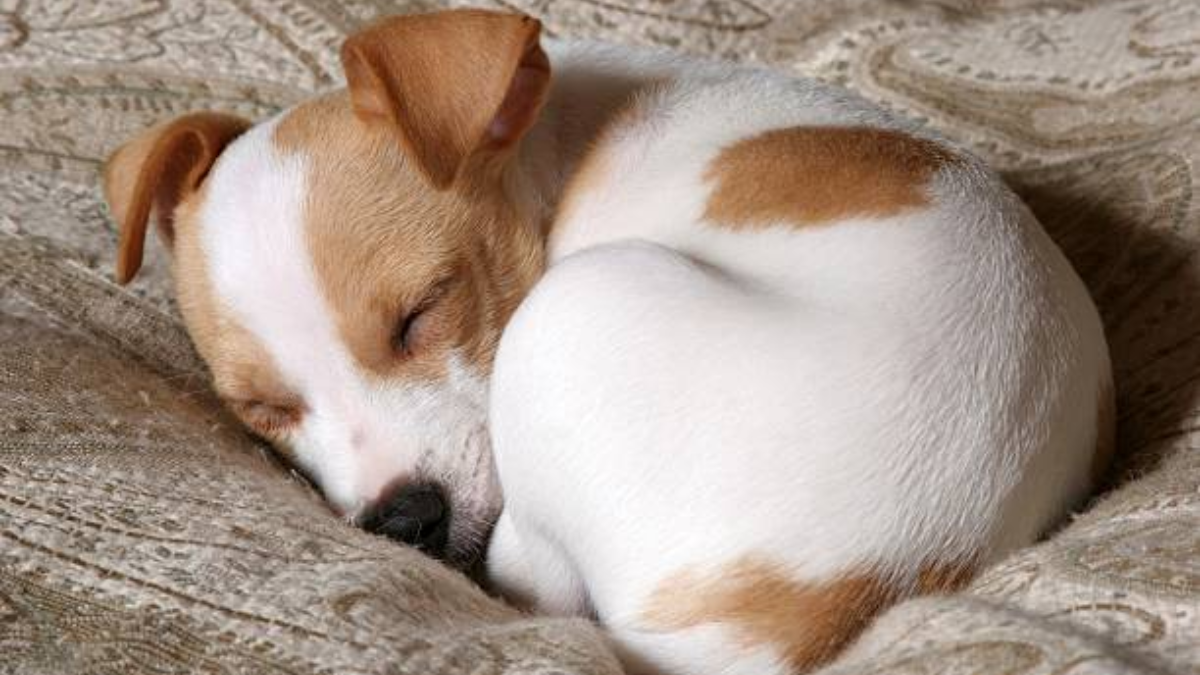
By following these tips, you can create a comfortable and peaceful environment for your dog to sleep in, and establish a routine that will help them get into a sleep pattern and improve the quality of their sleep.
Conclusion:
In conclusion, the question "Why Do Dogs Sleep So Much?" is fundamental to understanding our furry companions' behavior and well-being. Dogs, much like humans, require ample sleep to recharge and maintain their health. Factors such as age, breed, and activity level influence their sleep patterns.
Understanding your dog's sleep needs allows you to provide them with a comfortable environment and routine conducive to rest. Regular exercise and mental stimulation help ensure they achieve quality sleep and avoid excessive lethargy.
Consulting with a veterinarian can provide insight into any underlying health issues affecting your dog's sleep patterns. Additionally, addressing any potential sources of stress or discomfort in their environment can promote better sleep quality.
By recognizing and respecting your dog's need for rest, you contribute to their overall health and happiness. Ultimately, a well-rested dog is a happier and more energetic companion, ready to enjoy life's adventures with you.
Frequently Asked Questions
- How much sleep is typical for different age groups of dogs?
- The amount of sleep a dog needs varies depending on their age and size. Puppies and senior dogs tend to sleep more than adult dogs. On average, adult dogs sleep for 12-14 hours per day, while puppies can sleep up to 20 hours per day. Larger breeds may also require more sleep than smaller breeds.
- What causes a dog to start sleeping more suddenly?
- There are several reasons why a dog may start sleeping more suddenly. Some common causes include illness, injury, medication side effects, and changes in routine or environment. It's important to monitor your dog's sleeping habits and consult with a veterinarian if you notice any sudden changes in their behavior.
- Is it normal for dogs to sleep throughout the day?
- Yes, it is normal for dogs to sleep throughout the day. Dogs are naturally inclined to sleep during the day and be more active at night. This is because their ancestors, wolves, were nocturnal hunters. It's important to provide your dog with a comfortable and quiet place to rest during the day.
- Do dogs experience the same sleep patterns as humans during the night?
- Dogs have different sleep patterns than humans. While humans have a cycle of light and deep sleep, dogs have more frequent periods of REM (rapid eye movement) sleep. This is the stage of sleep where dreaming occurs. Dogs may also sleep more lightly than humans and be easily awakened.
- Can dogs become bored from excessive sleeping?
- Dogs may become bored if they are not getting enough mental and physical stimulation during their waking hours. However, excessive sleeping on its own is not necessarily a sign of boredom. It's important to provide your dog with plenty of opportunities for exercise, play, and socialization to keep them mentally and physically stimulated.
- Does sleeping a significant amount affect a dog's happiness?
- Sleeping a significant amount does not necessarily affect a dog's happiness. Dogs have different sleep needs than humans and may require more sleep to function properly. However, if your dog is sleeping excessively and showing other signs of lethargy or depression, it's important to consult with a veterinarian to rule out any underlying health issues.
